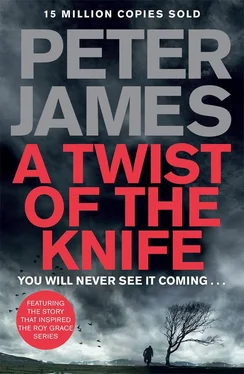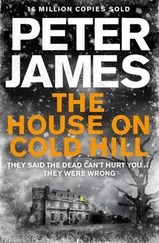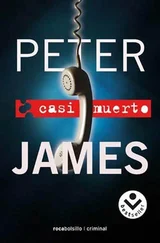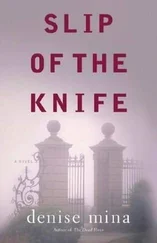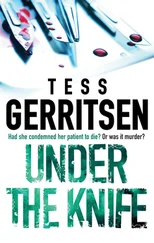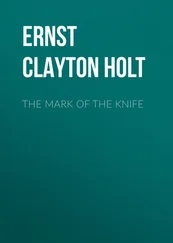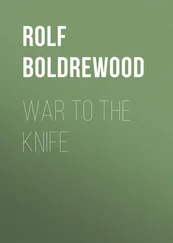The barrier at the Italian sector of the border control was up, and two officials in the booth, engaged in a conversation, didn’t bother to look at her. She slowed, her stomach in knots, then drove on. There was still the more efficient Swiss border control to go through a few kilometres further on.
Sure enough the barrier was down, blocking the road. She pulled up, lowered her window and picked her passport up off the seat beside her. The official peered at her from beneath the peak of his hat and frowned, clearly studying the smears on her face. Then, as she handed over her passport, he said something in German.
‘ Scusi? ’ she replied.
This time speaking in fluent Italian he asked kindly, ‘Have you had an accident? Is everything all right?’
‘Thank you,’ she said, ‘I’m fine. I had a flat tyre a few miles back, but I managed to change it myself with the help of a gentleman who kindly stopped.’ She raised her hands to show how grimy they were. As an additional precaution, in case anyone checked out her story, the spare wheel was lying loose with the luggage in the boot, partially deflated. Although she carried a foot pump in the car, just in case she really did get a flat.
Satisfied, he nodded, stamped her passport and handed it back. ‘Be careful now you don’t have a spare any more, Contessa. Are you going far?’
‘No, I plan to stop at the first hotel I find and stay until the morning, then I’ll find a garage to get it fixed.’
‘Yes, I think that would be sensible. A lady on her own in the middle of the night is very vulnerable. Perhaps you would be safer to pull in here and wait until dawn?’
‘I’ll be fine,’ she said. ‘But thank you for your kindness.’
‘I’ll alert the Polizei who patrol this road to keep an eye out for you.’
The very word made her tremble, and she hoped her nervousness did not show.’
‘Thank you, I appreciate that.’
‘What is your registration number?’
She gave it to him and he wrote it down. ‘There is a pleasant hotel about fifteen kilometres along this road. L’Auberge des Pins. I would try them, if they are open at this hour.’
‘I’ll look out for that,’ she said. Then she gave him a cheery wave and drove on, breathing a sigh of relief. She checked in her mirror and saw a large lorry had pulled up at the checkpoint. Good, she thought, he would be distracted. She put her foot down and accelerated hard into the night.
After several minutes of driving fast along the dark road through a valley, she saw a speck of light appear in her mirror. It rapidly grew brighter and she felt a stab of anxiety. She put her foot down harder, until the speedometer needle passed 160 kph. Then 170. Still the light kept on growing brighter. In another minute she was being dazzled by it, right on her tail now.
She felt nervous, half watching the light, half concentrating on the curving road ahead. Still the light stayed on her tail. It had to be a motorbike.
Was it police? Or had one of their servants passed on information to some crooks? She pressed harder on the pedal, pushing the speed up to 180 kph, and beyond her comfort zone. Pines, road signs and occasional houses flashed past. The yellow line in the middle of the road stretched out ahead and the Alfa felt as if it were on rails, but she was too scared to feel exhilarated. She wasn’t sure whether to slow and let the bike pass, or keep on to her destination. But she was scared of crashing.
God, she thought, imagine crashing, and all the millions of dollars’ worth of paintings in the boot being destroyed?
Then the lights ahead picked up the name of a village, and a 50-kph speed limit sign. Could she take the risk of ignoring it? What if it was police behind her? She reduced her speed slightly and suddenly, to her relief, the motorbike roared past, carrying on at high speed, its tail light fading away into the night as she decelerated further, bringing her speed down to a much more comfortable 80 kph, until she was through the village and back out on the open road.
She was shaking, she realized, her hands trembling on the wood-rimmed steering wheel. Then, to her relief, she saw the welcoming sign for her night stop, L’Auberge des Pins, five Ks ahead. She had not told the border official that she had a reservation there and had warned them she would not be arriving until the early hours of the morning.
Drenched in perspiration, she finally pulled up outside the front entrance of the hotel. Ten minutes later, having given a massive tip to the night porter who had carried her bags up and then brought her a large brandy, she sat down on a sofa in her suite, cradling the glass, and lit a cigarette. Then she phoned her husband to say she was safe, and smiled at her two large Louis Vuitton suitcases. One contained the clothes, washbag and makeup bag she needed for the trip. The other, beneath an assortment of underwear and dresses, contained a conservative five million pounds’ worth of Impressionist canvases, all lying at the bottom, removed from their stretchers.
An hour later she fell into a fitful sleep, and dreamed of being chased for a hundred miles by a whole posse of bandits on motorcycles. She awoke shortly after 7 a.m., drenched in perspiration and scared as hell. The enormity and danger of what she was doing was now really hitting her. She needed to kill a few hours in the hotel, then set off in the afternoon and head to Geneva, then up towards Jurançon to cross the French alpine border, again in the middle of the night. Then the following day on to England and a plane to New York.
She phoned her husband again and was comforted by his reassuring voice. It was easy for him to sound calm, she thought after she had hung up. She still had the Swiss and French border officials to get through. Then the English ones. No one would be interested in checking her bags when she flew into New York, he assured her. Once she was in England she would be home and dry.
She crossed into France at 2.30 a.m. the following morning without any problem at all. She had a bleary-eyed border official barely look at her passport before waving her through, and finally she was on the last leg. At 3.30 a.m. she checked into a lakeside chateau hotel near Annecy and fell into a deep sleep, waking at midday. She climbed out of the vast bed and, before phoning her husband, she opened the suitcase containing the paintings and their salvation for the future, lovingly, if a little sadly, thumbing through the canvases, each of them separated and protected by layers of silk dresses and underwear.
Next stop was the Calais — Dover night ferry, by her calculations an eight-hour drive, including meal stops, from here. In planning the trip with her husband and Denempont, they had discussed ways to handle a difficult customs official. They had discussed the possibility of a bribe, which was in general how it worked in Italy, and she had a large wad of lire with her, which had not been needed, as well as a large sum in French francs.
But they had ruled out any attempt to bribe either Swiss or British customs officials as too risky. If it backfired in either of these countries, she could risk arrest, and the consequences of that were unthinkable. She was going to have to rely on her charm which, with her handsome looks and aristocratic pedigree, she knew how to turn on to maximum effect, and as a fall-back, on a cunning plan that had been suggested by Denempont.
Even so, as she hit the road once more, she felt an increasing knot of anxiety with every kilometre that drew her nearer to Calais. She arrived at the port shortly after 11 p.m., an hour ahead of her estimate, and pulled into a quiet area of the ferry port car park, near some lorries. She wanted to arrive in Dover, as discussed with the art dealer, at 3 a.m., when the customs officers would be at their tiredest. With the one-hour time difference that meant catching the 2.30 a.m. boat. Three and a half hours to kill.
Читать дальше
